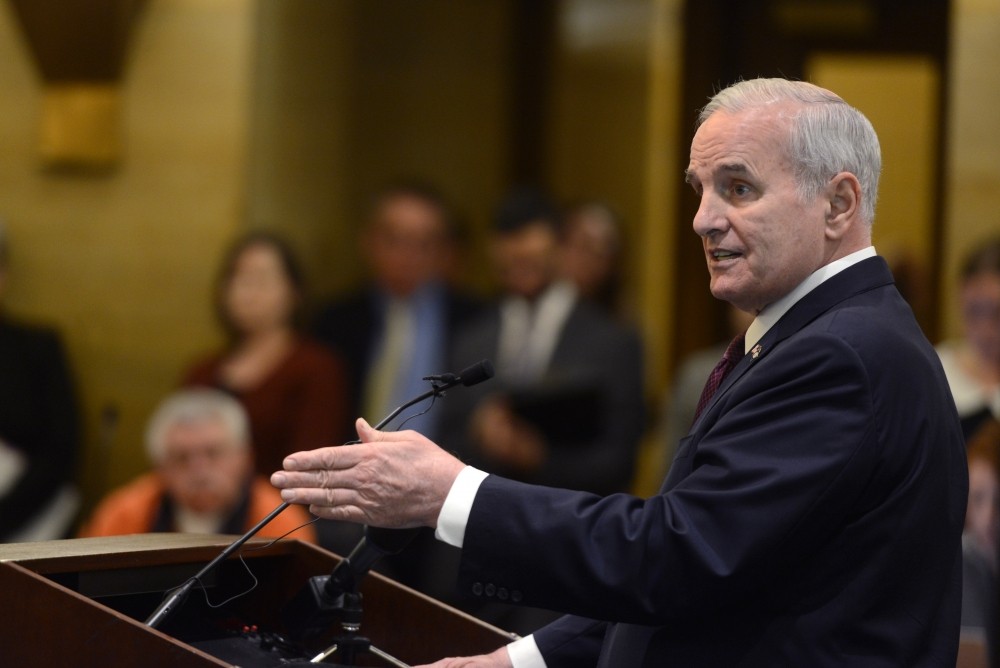Gov. Mark Dayton and legislative leaders reached a tentative budget deal Monday night, closing a contentious regular session with University of Minnesota funding in the balance.
Dayton called the Legislature back for a special session until Wednesday morning to finalize budget and bonding bills that weren’t passed before the regular session deadline Monday at midnight. Five budget bills, including the higher education omnibus bill, did pass the Legislature in a session marked by partisan disputes on how to use a $1.6 billion budget surplus.
The Senate and House passed the most recent higher education funding bill Sunday, which would allocate $1.3 billion to the University between 2017 and 2019, a $54.6 million increase from the last biennium. Dayton previously vetoed a version of the bill which would add $18.6 million to the school’s allocation.
The new amount is still below the $96.8 million increase Dayton asked for and the $147.2 million increase the University requested.
“It’s not everything that I want … I would like more for higher education, I would like more for E-12 education,” Dayton said at a press conference Monday night. “But I didn’t expect that I’d get all I want. … Compromise means you agree to things you don’t agree with, and we’ve all compromised.”
The current higher education bill would spend $3.28 billion on higher education over the next two years. That is a $210 million funding increase from the past two years, and $85 million more than the version Dayton vetoed.
Several DFL legislators criticized the higher education bill’s funding, and the bill received few DFL votes on Sunday.
But Sen. Michelle Fischbach, R-Paynesville, defended the amount to the Senate.
“This is not a punitive bill,” Fischbach said. “There are a lot of good things that are being overlooked in this bill.”
Fischbach, who leads the higher education committee and co-authored the bill, cited the bill’s spending on state grants for students with financial need, funds for homeless students, and the University’s cancer research.
Still, students pay in rising tuition rates when the state underfunds the University, said Rep. Jennifer Schultz, DFL-Duluth.
The state should receive an increase of over $100 million in state grants funding, “if we’re serious about making college affordable,” Schultz said. Currently, the state grant’s appropriations will get $396 million, an increase of $34 million.
Minnesota Student Association’s Government and Legislative Affairs Director, Max Hurst, said the current allocation is more encouraging than the original increase of $18.6 million. Still, Hurst said MSA was hoping for a larger funding increase.
The new higher education budget bill now contains a provision mandating that student services fees cannot be raised more than 2 percent without a student vote in a campus referendum.
Previous versions of the bill would have made the fees optional, in an effort to make college more affordable.
Hurst said optional student service fees would have put programs at risk, and MSA is more comfortable with the revision to the bill.








